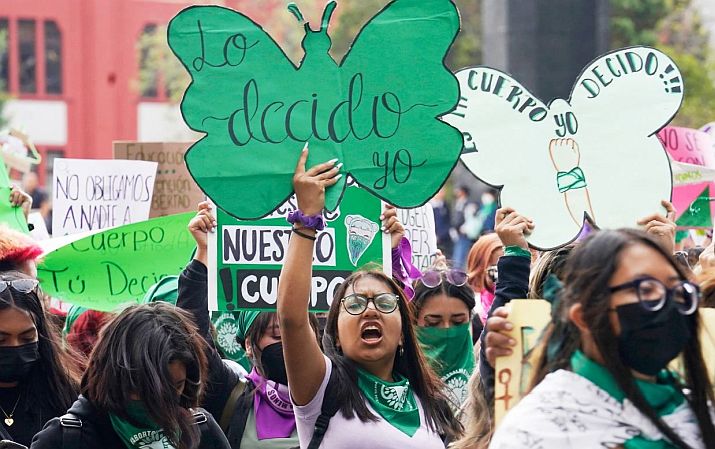
Mexico’s supreme court on Wednesday unanimously ruled that state laws prohibiting abortion are unconstitutional and violate women’s rights. The decision came two years after the court ruled that abortion was not a crime in the northern state of Coahuila. That ruling set off a slow state-by-state process of decriminalizing it.
The high court ordered that abortion be removed from the federal penal code. The ruling will require the federal public health service and all federal health institutions to offer abortion to anyone who requests it.
The court’s decision marked a major victory for the GIRE, a reproductive rights organization based in Mexico City, which brought the test case against the Mexican state as part of a years-long campaign for reform. “No woman or pregnant person, nor any health worker, will be able to be punished for abortion,” GIRE, said in a statement.
For now, the ruling does not mean that every Mexican women will be able to access the procedure immediately, explained Fernanda Díaz de León, sub-director and legal expert for women’s rights group IPAS. Some 20 Mexican states still criminalize abortion. While judges in those states will have to abide by the court’s decision, further legal work will be required to remove all penalties.
Díaz de León and officials at other feminist organizations worry that women, particularly in more conservative areas, may still be denied abortions. “It’s a very important step,” Díaz de León said. But “we need to wait to see how this is going to be applied and how far it reaches.”
Observers in Mexico agreed that it would take time to see how Wednesday’s ruling is applied.
In the southern state of Guerrero, Marina Reyna, director of the Guerrero Association Against Violence toward Women, cautioned that challenges would persist. Her state decriminalized abortion last year, but there are 22 open investigations against women accused of ending their pregnancies. “There is still a lot of resistance,” she said.





